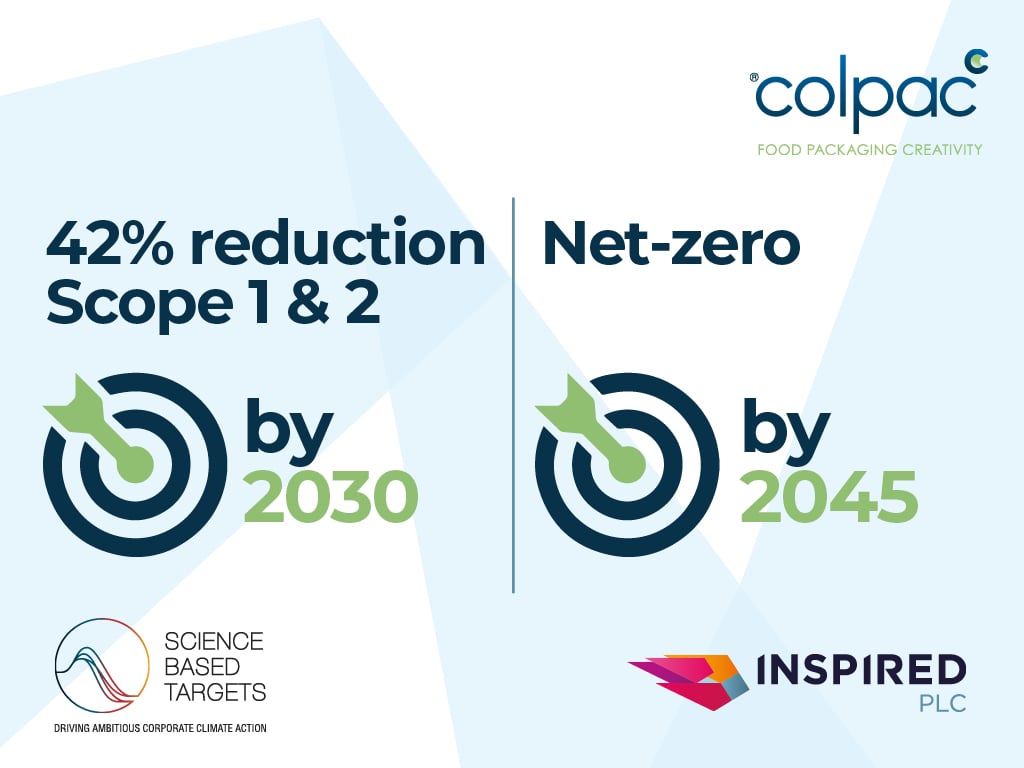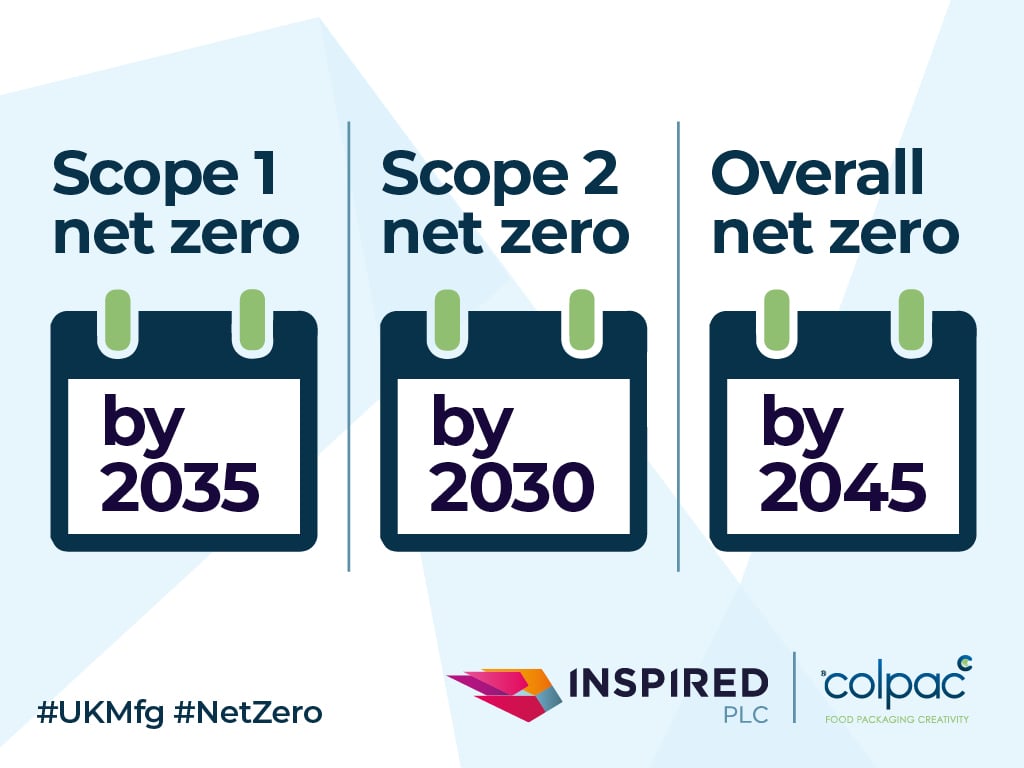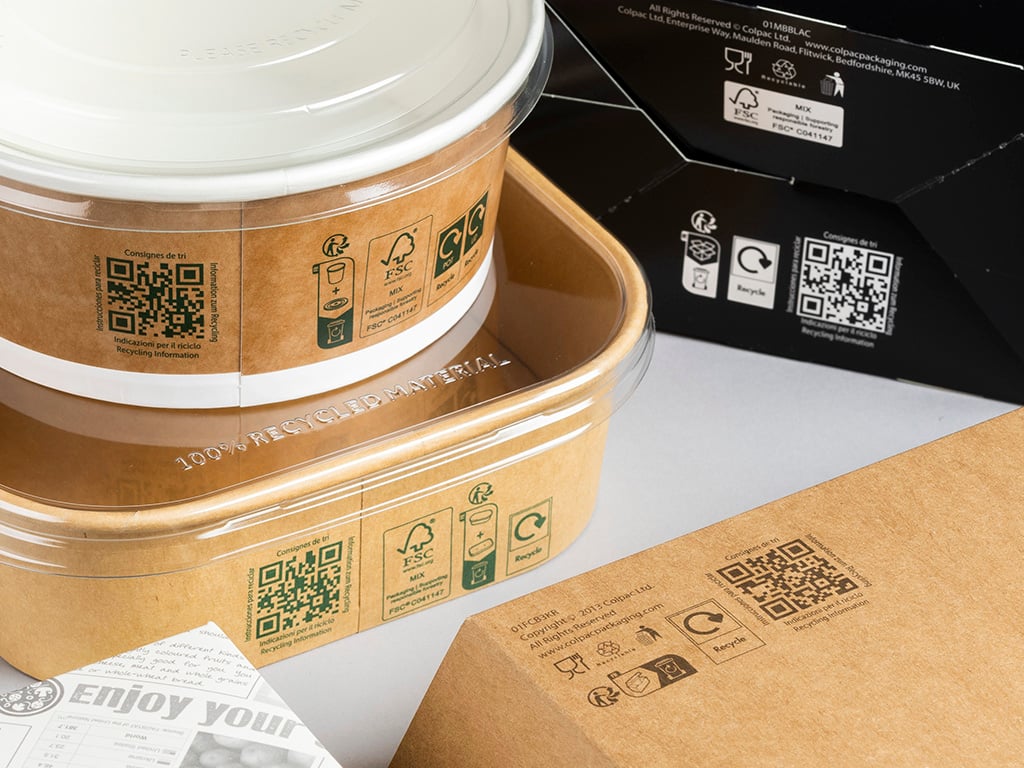
Sustainability
Providing sustainable food packaging solutions is at the heart of our business.

Business as a Force for Good
We are committed to instilling environmental and social sustainability in all areas of Colpac. From championing eco-design, through efficient and agile manufacturing processes, to sustainable sourcing, rigorous compliance standards, and responsible business practices.
We’re building on new and improved projects including:
- Delivering a net zero strategy in 2023
- Constant evaluation of manufacturing efficiency
- Zero waste to landfill on site
- 100% renewable energy powered factory
- Effective ISO 14001 management system for continuous improvement
- Ever greater transparency and traceability in our supply chains
- Innovation in our materials, products, and circular solutions
- Day-to-day and board level “green” teams
- Investment in local conservation through the Wildlife Trust

Product Sustainability
We are passionate about doing business in a way that reduces our impact on environment.
Packaging in the first instance serves to preserve and protect the food within it. We strive to balance this functionality with sustainability, to safeguard the natural world we so greatly depend on.
We consider several key elements around our commitment to product sustainability.
- Sustainable sourcing
- Considered design
- Reducing impact
- Reducing food waste

Recycling Our Products
Ensuring the recyclability of our sustainable food packaging is important for several reasons including prolonging the life of a raw material, saving energy, reducing carbon emissions, protecting habitats, reducing waste, and giving value back to a product.

Composting Our Products
Compostable packaging provides a circular alternative to plastic packaging and has the potential to contribute towards the circularity of food waste.
Recycling & Composting FAQs

The recyclability information that we provide online and, in our catalogue, relates to UK OPRL recycling guidelines. The current threshold for plastic content within recyclable paperboard is 10%.
Information on sustainability guidelines for other countries is available for each of our products. For specific country information, please contact your account manager.
Unless otherwise stated, our recyclability credentials refer to the entire product. Where a window or a separable part (e.g., lid) should be removed, guidelines are given.
Colpac products are designed with circular economy principles in mind. We predominantly rely on recycling to improve the circularity of our products. We constantly innovate as recycling guidelines and legislation evolve to increase recyclability.
With the right closed loop solution, compostable packaging can restore land and help to fuel the production of new materials used to make similar products.
Unrecyclable products are not circular. Even with circular economy principles in mind, we sometimes choose to make trade-offs to tackle other environmental issues. An example is preventing food waste which has a higher carbon impact than packaging. Our Modified Atmosphere Packaging is difficult to recycle, but extends food shelf-life by over 10 days.
‘Biodegradable’ means that the material will degrade over time, but it doesn’t tell you what it will degrade into or how long it will take. EN13432 certification confirms that the materials will biodegrade within a specific time frame and will not leave any toxic waste.


